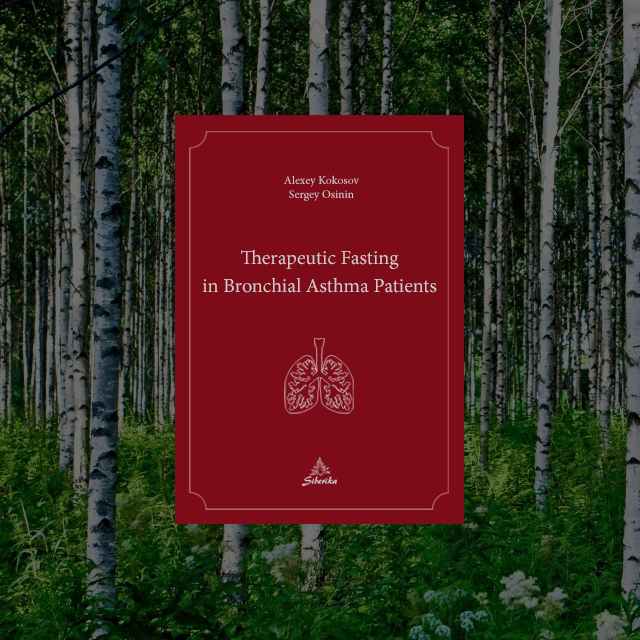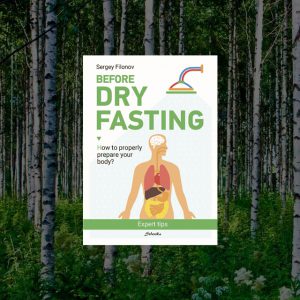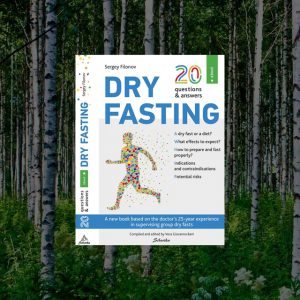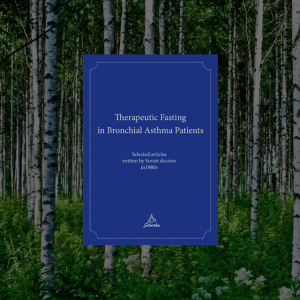Therapeutic Fasting in Bronchial Asthma Patients – A. Kokosov, S. Osinin – eBook
Related article: Non-Pharmacological Treatment of Asthma: Fasting Method
This book, which was first published in 1984, summarizes the research conducted by Soviet doctors in the field of non-drug treatment of bronchial asthma. This work was carried out in the 1970s-1990s by several groups of pulmonologists independently of each other. This new approach to the treatment of asthma entailed the use of long-term therapeutic wet fasting. In the course of these studies, over a thousand asthma patients at hospital pulmonary departments underwent fasting. The results of fasting were assessed in terms of lung function, the patient’s well-being, blood biochemical parameters, and immunity indicators; they were subsequently compared with the results of traditional medication treatment.
22,00€
Description
In the Soviet Union, a scientific approach to medical fasting was first applied in the 1950s by Professor Yuri Nikolaev. He elaborated the details of using this method, first in treatment of schizophrenia, and later for other diseases. By the beginning of the 1970s, when a decision was made to study the effect of fasting on asthma, Nikolaev’s method was already widely known throughout the USSR. Many doctors have successfully used it in a clinical setting to treat a number of psychological and somatic diseases, including those with allergic pathogenesis. The positive results obtained in these cases suggested that fasting possessed healing properties in the treatment of allergic bronchopulmonary diseases, primarily bronchial asthma.
The problem of finding an anon-medication asthma treatment method was relevant at that time since pulmonologists were already aware of the serious disadvantages of drug therapy. These disadvantages were especially evident in the presence of concomitant diseases in asthma patients: diabetes, hypertension, skin, and gastrointestinal tract lesions with allergy elements. In such cases, the situation requires the simultaneous administration of numerous drugs, which is difficult, since asthma often leads to hypersensitivity to a number of drugs.
This research lasted for over two decades, with several dozen doctors from different Russian clinics participating in them. The effectiveness of therapeutic fasting has been proven during this period, particularly when asthma is combined with the pathology of other organs and systems. Fasting has demonstrated better results in such cases than conventional treatment. In addition, fasting led to a more prolonged remission of the disease. Based on the research results, over a hundred scientific articles have been published and recommendations have been issued for pulmonologists on the use of this method.
The action mechanisms of fasting in patients with asthma are varied. First of all, the body is cleansed and freed from antigenic material due to active autolysis, which reduces the level of sensitization. In addition, the mild prolonged stress for the body provided by fasting has a strong positive effect on hormonal balance. In particular, this stress improves adrenal function and stimulates the synthesis of corticosteroids. Both of these factors, added to the general anti-inflammatory effect of fasting, possess a strong therapeutic effect that often helps to get off medications.
The book describes the indications and contraindications of the fasting method and its varieties. It explains the specifics of its use depending on the severity of asthma and the presence of concomitant pathologies, as well as possible complications and ways to prevent them, prevention of disease relapse.
Format: E-book, PDF, MOBI




